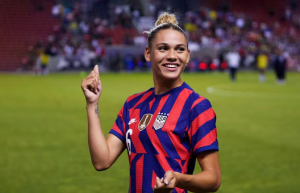NBA commissioner Adam Silver said the league is learning from the NFL's handling of domestic violence issues and will "take a fresh look" at its own policies to avoid any similar mistakes in the future.
The NFL has drawn criticism for its handling of domestic violence issues, particularly regarding Baltimore Ravens running back Ray Rice. In an effort to avoid drawing similar criticism, Silver said the league already has been working in conjunction with the players' association to ensure the NBA has appropriate policies in place.
"We learn from other league's experiences. We're studying everything that's been happening in the NFL," Silver told reporters Monday at a news conference in New York City to announce the league's community service initiative for the 2015 All-Star Game, via ESPN. "We're working with our players' association [and new executive director Michele Roberts.] We've been talking for several weeks, and we're going to take a fresh look at everything we do. ...
"The whole world's focused right now on what's happening around the NFL, so it would be foolish for us not to try to learn from everything that's happening with that league."
The NBA's current domestic violence policies, which fall under the policies regarding violent misconduct and unlawful violence, mandate a minimum 10-game suspension along with counseling for a first-offense conviction. The league also has the power to impose additional discipline.
One area Silver wants the league to focus on is education. Although the league already has programs in place that address domestic violence, Silver said the league would consider enhancing the programs.
"By no means am I naïve; we've had our share of issues over the years," Silver said. "What we can do is focus on education. We have in place the appropriate mechanisms for discipline, but we'll take a fresh look at them as well. Most importantly it's education. It's not just the players, but it's the players' families. That's what we're learning.
"We have to take these programs directly to the players' spouses, directly to their partners, so they're aware of places they can go to express concerns. Whether they're anonymous hotlines, team executives [or] league executives. And we're consulting experts. There's a lot to be learned here. It's a societal problem. It's not one that's unique to sports. We're enlisting lots of experts out there to help us."
© 2026 HNGN, All rights reserved. Do not reproduce without permission.








